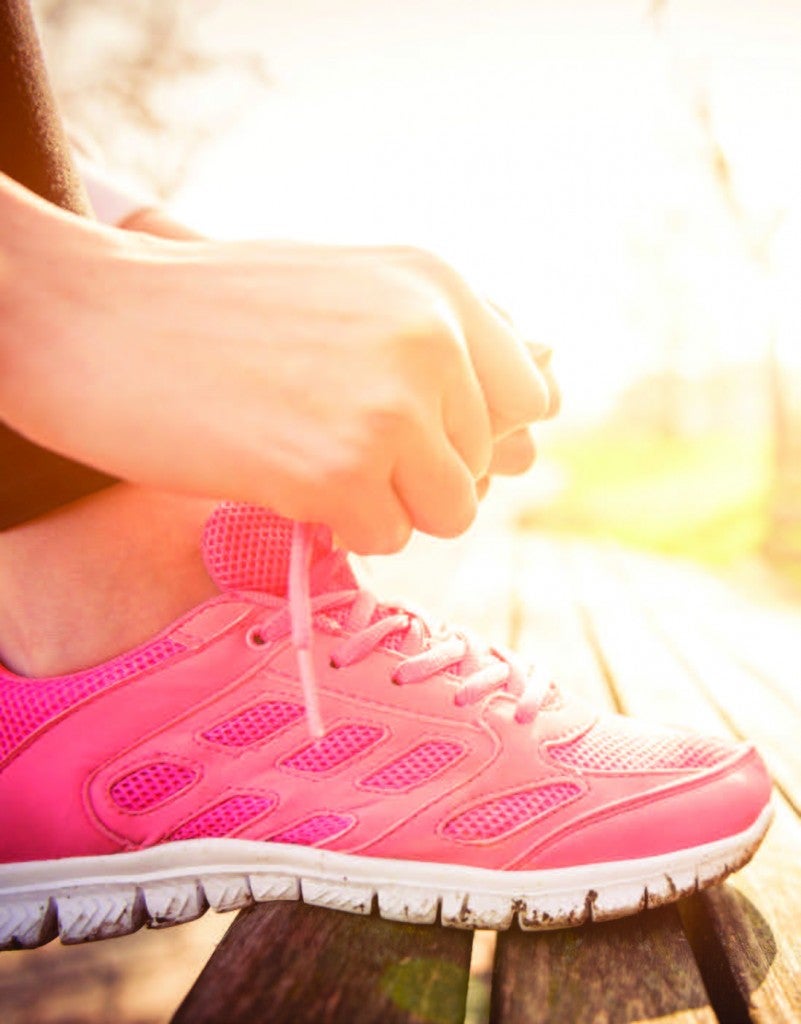Should You Take A Rest Day? Our Coach Has The Answer

NCAA-runner-turned-high-school-coach Hillary Kigar has an answer for all things training!
Q: Why do my toes fall asleep while running?
The first thing to check when you experience pins and needles is the fit of your running shoes. If your kicks are too tight, they may be restricting blood flow. Check with an associate at your local running store to be sure that the width, length and support of your shoe is best for you and your running form.
It’s also possible that circulation is an issue. Rather than immediately going from sitting to sprinting, be sure to walk around, stretch and do some active drills before you start your run. Check with your doctor if you continue to experience this or if you begin to feel any pain.
Related: Top 12 Running Shoes For Spring
Q: Every training plan I’ve followed calls for a “rest day,” but do I really need to take a full day off from running every week?
There is no doubt that rest is a key part of training. For some runners, a “full day off ” occurs once every week with no exceptions. Others need two or three days off a week, while more experienced runners might take a rest day every few weeks, only when their body tells them that it needs it.
There is no perfect way to train. Learn to listen to your body and anticipate its needs so you don’t get to a point where you are burned out, injured or sick. When you do take a day off the trails, don’t feel guilty. Enjoy it—get a massage, sleep in and rest up!
Related: Recovery Does Not Make You Weak
Q: I’d like to start running to lose weight. Is it better to start walking longer distances or running shorter ones?
Great question! When you are just starting to run, variety in your training is very important. The simple answer is both. You need to mix it up not just for your body, but also for your mind, in order to stay motivated! I recommend that beginners start by measuring their workouts in minutes instead of miles. You can worry about the distance later—at this point, it’s all about time on your feet. Gradually build your time and pace from week to week. Be patient and the results will come!
For example, if your longest day of training is 45 minutes, alternate your training days between:
- Long walk (45 min.)
- Short run (15 min.)
- Walk 10 min., run 10 min., walk 10 min.(30 min. total)
- Biking, swimming, yoga, etc. (45 min.)
Related: Running For Weight-Loss Plan
Coach’s Tip: Don’t Skimp On Socks
The importance of high-quality running footwear extends beyond your shoe closet. Those jumbo packs of cheap cotton socks may be a good deal for your wallet, but your feet will pay the price. Cotton doesn’t effectively absorb moisture and, with prolonged movement, can rub on your skin, creating painful blisters. Go to a running store and choose from its selection of running socks.
Have a question for Coach Kigar? Email editorial@womensrunning.com or tweet @womensrunning with the hashtag #AsktheCoach.
